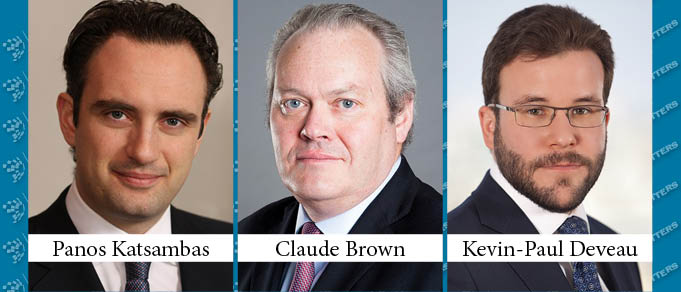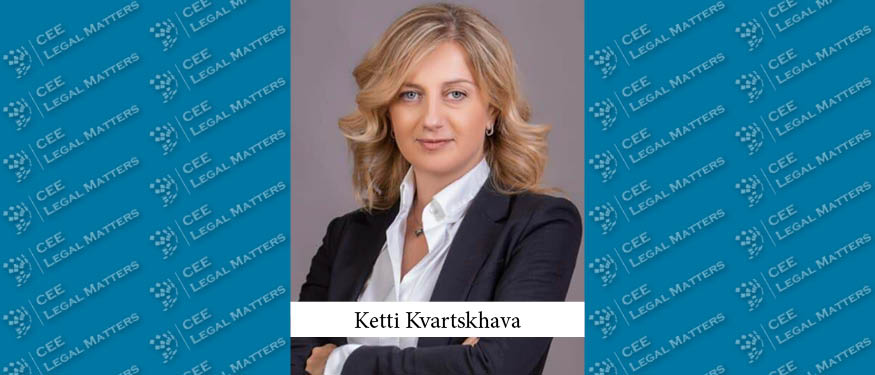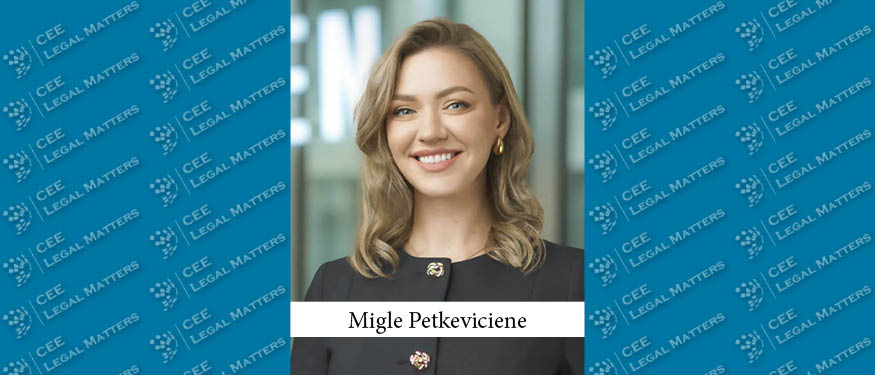An Interview with Partners Panos Katsambas, Claude Brown, and Kevin-Paul Deveau from Reed Smith’s Dedicated CEE/SEE Group.
CEELM: Please tell us about the CEE/SEE Group at Reed Smith. How does the firm cover the region?
Panos: It is a combination of practitioners who have links to specific countries, either by virtue of being lawyers coming from such countries or by developing relationships with clients from past mandates or through local law firms. There isn’t one model, but we have country-specific business teams that combine these approaches to further develop our business. In addition, we have local offices in Kazakhstan and Athens that help us with respect to these (and to a certain extent, some neighboring) jurisdictions.
Claude: As Panos notes, we have a broad network, developed either through clients and law firms or through personal connections. We have a number of country-specific teams for most parts of the world, but for CEE, we have developed a regional team as we find that it fits our clients’ needs best. Frequently, we are instructed on cross-border deals in the region which involve several jurisdictions, and this fits well with our regional approach. We often find that law firms in the region operate a similar approach, and this makes collaboration much easier.
Kevin-Paul: I think that’s entirely right. I have personal connections in the region – I lived in Bucharest on secondment with a Magic Circle firm for three and a half years; my family is Polish; and I have close relationships with bankers, borrowers, and law firms in the region – which make CEE very central and important to my daily life and outlook. That experience and those relationships feed into every aspect of my practice, whether it’s introducing local borrowers to London-based lenders or explaining local issues and circumstances to people who are new to the region. At this point, it all happens organically, even though I am based in London.
CEELM: How does CEE fit into the firm’s overall strategy?
Panos: Reed Smith is a global law firm, and this is how we think about our long-term strategy. I know that “global” is a term that gets used a lot, but it is at the heart of what we do, where our firm is focused, and where we see ourselves growing. We have clients who are properly global and who are jurisdiction-agnostic or (at least) less jurisdictionally sensitive than they used to be.
It is critical to our business and our strategy that we support our clients, regardless of where they happen to make a particular investment or do a particular deal, with all the discipline and high standards they have come to expect from us.
It would make no business sense for the firm to have strategic clients and for us not to move side-by-side with them into Poland, or Hungary, or any other country in the region. And to do that, we need to know how to do deals in those jurisdictions. Being global also means that you are able to introduce clients from CEE (and other) jurisdictions to the firm’s global platform and have them follow you and work with you when they work on deals requiring US or English law (for example) expertise.
CEE is becoming more and more integrated with the broader European market, and we want to be at the center of that. Our London office lead deals, as a result of the dominance of English law in Europe, generally. Our German offices are constantly focused on supporting cross-border integration in Central Europe, whether that’s in supply chains or capital structures. And our Greek office acts as a hub for local investment and regional shipping.
We also, on occasion, work with local law firms, and we have developed a panel of extraordinary partners, to ensure we hit the ground running whenever our clients need localized support.
Claude: I would also add that you really can’t ignore CEE, whatever you choose to call it (not too long ago, the phrase “New Europe” was making the rounds). We do our best not to distinguish between CEE and the rest of Europe. The effect of the acquis – the body of law which comes with joining the EU – has meant that the story over the last 30 years has been one of convergence of legal regimes. That said, there are still enough differences to make local knowledge invaluable. Then there is the commercial angle – CEE countries often provide growth opportunities which are harder to come by in Western Europe and other traditional markets. Our clients are keenly aware of that fact, and we need to be in a position to support them as they expand in those markets.
Where our clients see good opportunities, we need to be ready to help them. Where they haven’t yet seen good opportunities, we will do our best to find them and bring them to our clients. The number of times that I have said to a client, “you can invest in Poland, right?”
It’s a role that is part follower, part evangelist.
And then there are the trans-regional transactions, where you need to deploy mixed discipline and jurisdictional teams that understand not only the local market or markets but also see the bigger picture and understand the overarching goal. That’s where you almost have to put on a business advisor’s hat on and not only provide the best-in-class legal services but also align yourself with the client’s long-term business strategy and interests, proving that you are a real partner of theirs. While mature Western Europe markets may be quite similar, each CEE market still maintains a level of individualism, and that’s where a law firm can show its skills when it comes to applying a global perspective to a local deal. We pride ourselves in always being able to deliver that for our clients.
To summarize, CEE is a key market for us and will continue to be so, as we keep seeing fantastic opportunities, both now and in the medium- and long term.
Kevin-Paul: CEE has been and continues to be a very exciting area for doing business - the growth potential specific to emerging and emergent markets is still there, clients are open to new products and have sophisticated tastes, there’s fantastic technological savviness, and the labor force is skilled and competitive. This hasn’t changed and will continue to draw investors and see interesting deals. Our clients are global - which means our firm has to be too. We follow the markets in the region very closely and source potential areas of interest to our clients proactively. We have our ears to the ground and, by being involved in a significant number of transactions, we have a deep understanding not only of the bigger picture but also of the so-called “nitty-gritty,” which can, so many times, make the difference when it comes to doing business.
When our clients do a deal in Poland, or Hungary, or Romania, they want to do it to their standards, with all the bells and whistles they have come to expect from a well-negotiated and well-executed deal, but in a way which is not insensitive to conditions on the ground and local law requirements. We have to sit in the middle of competing interests and find a way to “get it done.”
Even during the pandemic, the region has signalled that it is still open for business and we have been working throughout the last six months on different transactions, in different jurisdictions.
It’s interesting. Five years ago, most private credit funds could not lend into CEE. They were restricted by the terms of their investment policies or limited partnership agreements. Lending into the US – fine. Western Europe – fine. CEE – nope! Well, those days are gone. Barely a week goes by where some new business in CEE isn’t looking for financing outside their home markets and outside traditional bank-driven structures. Importantly, our credit fund clients are now not only able to respond to those enquiries but actively seek them out.
CEELM: How does the firm promote and market its capabilities in the region?
Kevin-Paul: Our promotion and marketing efforts are primarily deal-driven. We properly and effectively execute each deal. Our clients are happy. Their investors are happy. The other parties are happy. The more deals you do in a specific jurisdiction, the more you build on that expertise and newcomers will want to work with someone who has been there before. It is critical to know who is who among the players in the country and to have navigated the jurisdiction-specific sensitive issues previously.
Separately, having a network of local firms presents us with opportunities that we can share with clients and either open new relationships or show that we are on the pulse of local market activity.
CEELM: Do you have best friends you work within the region?
Claude: Over the years our team has built up an enviable range of friends in the CEE, who not only allow us to have a point of contact in every country in the region but also offer us a complete suite of specialisms. This allows us to cover every corner of a deal and work of cross-border deals. Knowing people for years – and them knowing us – engenders trust and confidence. You know they will go the extra mile (or kilometer), and they know that you know what you are doing. In some cases, the firms we know have built their own regional networks and that can really help the bigger multi-jurisdictional deals along. It also means that they can offer us their network expertise in jurisdictions where we may not traditionally have had extensive contacts. In other deals, our friends in the region offer us deep specialist knowledge in key disciplines, be they cybersecurity, IP, derivatives – or whatever. It is highly satisfying when a client calls saying that they have an urgent and complex problem within the Czech interbank payment system, and you can say, “I know a lawyer who knows the CERTIS system inside out. Let’s call him now.”
CEELM: Which specific deals in the region that you’ve worked on did you find most interesting/significant??
Panos: Advising Invel Real Estate in its acquisition of NBG Pangaea REIC (now Prodea Investments), which at the end of 2013 was the largest real estate deal in Greece. More importantly, however, staying with the client throughout the subsequent seven-year period, facing a significant Greek financial crisis and seeing through a successful exit of the initial investors, a recapitalization of the acquisition vehicle, and the buy-out of the remaining stake of NBG in the business. Aside from a very successful lawyer-client relationship, we faced and overcome numerous legal and commercial issues in ways that only an international counsel with local market expertise could help its client navigate.
Claude: Perhaps I am a bit of geek (or just sad), but I really find getting into the plumbing infrastructure of the regions financial markets makes for the most interesting transactions. After the collapse of Lehman in the financial crisis in 2008, we worked on a project for a broker/dealer client which needed to know how long its securities or cash could be locked up in the settlement systems in the region, if one of its counterparties became insolvent. For that sort of project, you not only need financial markets lawyers in the region who know their law but who also know the practical aspects of securities trading.
Kevin-Paul: If Claude is a bit of a geek, I am maybe a bit of a romantic. I really enjoy doing real estate finance and project finance transactions. They produce jobs for the local market. They change lives. They change economies. I still remember negotiating a deal for an anchored shopping mall in the region. It was built in a town that I knew very well. Prior to its construction, people used to drive hours to a neighboring city to get certain items. Then, one day, that all changed. So much more was immediately available to the people of that town. And it changed living standards and the local economy. When a manufacturing plant gets built, or a wind farm, or a highway, where there wasn’t one before, it is so much more concrete in terms of visible and identifiable benefits for other people than on some other kinds of transactions.
CEELM: Do you have any good war stories you can share with us about work in CEE?
Claude: At the start of the pandemic, I received a call from the GC of a client which specializes in outsourcing work and for which I have done finance transactions for over ten years. They needed urgent advice on the furlough and short work schemes, as well as emergency employment protection laws in six countries within the CEE. Within an afternoon, we had the best team of regional employment lawyers lined up to provide that advice, even though some governments were still writing the emergency decrees. Working with our employment lawyers, the regional task force that we had assembled delivered the collated advice overnight, allowing the GC to brief the Board by lunchtime.
On one deal, a regional bank was granting security over collateral for a derivatives trade. We ran the usual searches at Companies House to see if it had a registered establishment in the UK and the searches came back showing a nil return. Where a company is incorporated in or has an establishment in the UK, you have to register the collateral with Companies House, but otherwise, no registration is required. Fortunately, we had a very diligent trainee who also decided to Google the bank and discovered that a local “branch” of the bank was a member of the chamber of commerce in a small market town in Buckinghamshire. It turned out that, for some reason best known to himself, a bank employee had decided to designate his UK house as a branch of the bank and had joined the local chamber of commerce. Fortunately, we were still within the time limits for registering the security but there were some interesting phone calls with Companies House.
Panos: We closed a deal this March with simultaneous local closings in Greece, Italy, and Spain (not 100% CEE) while all three countries in strict lockdown and needing local notaries to be present for the closing to be effected. That was a learning experience and process!
Kevin-Paul: Perhaps one of my most memorable war stories was a deal that I closed in CEE. We were given one week’s notice to close an acquisition with a rollover of the existing financing. The lawyers flew in from London on the Monday, and we sat for three days, high-up in an office building, negotiating day and night. The negotiations got tense, and they were broken off midday on Thursday. At 11.00 pm, we got called back to the meeting room, and the purchaser effectively said that we weren’t to leave the room until the deal was done. We finished at 10:30 am the next day. Everyone was tired. No one had slept much that week, particularly the lawyers who had to manage other transactions and email flow in the middle of the night. When we finished the deal, one of the clients stood up, looked at his lawyer and said, “Right. When can we have the facility agreement? 1.00 pm?” The lawyer’s face just dropped. It was clearly impossible to turn the document in less than ten hours of work, and he hadn’t slept. I tried to jump in, “I think it will take a bit longer than that, and I suspect we could use a bit of sleep first. It is important we get the next turn right.” That didn’t go over well. The lawyer agreed (under duress) to get the document out later that day, and we were all allowed to leave the room at that point. In the end, I received the draft the following Monday (i.e., three days later). The deal completed successfully a few weeks after that.
This Article was originally published in Issue 7.10 of the CEE Legal Matters Magazine. If you would like to receive a hard copy of the magazine, you can subscribe here.













